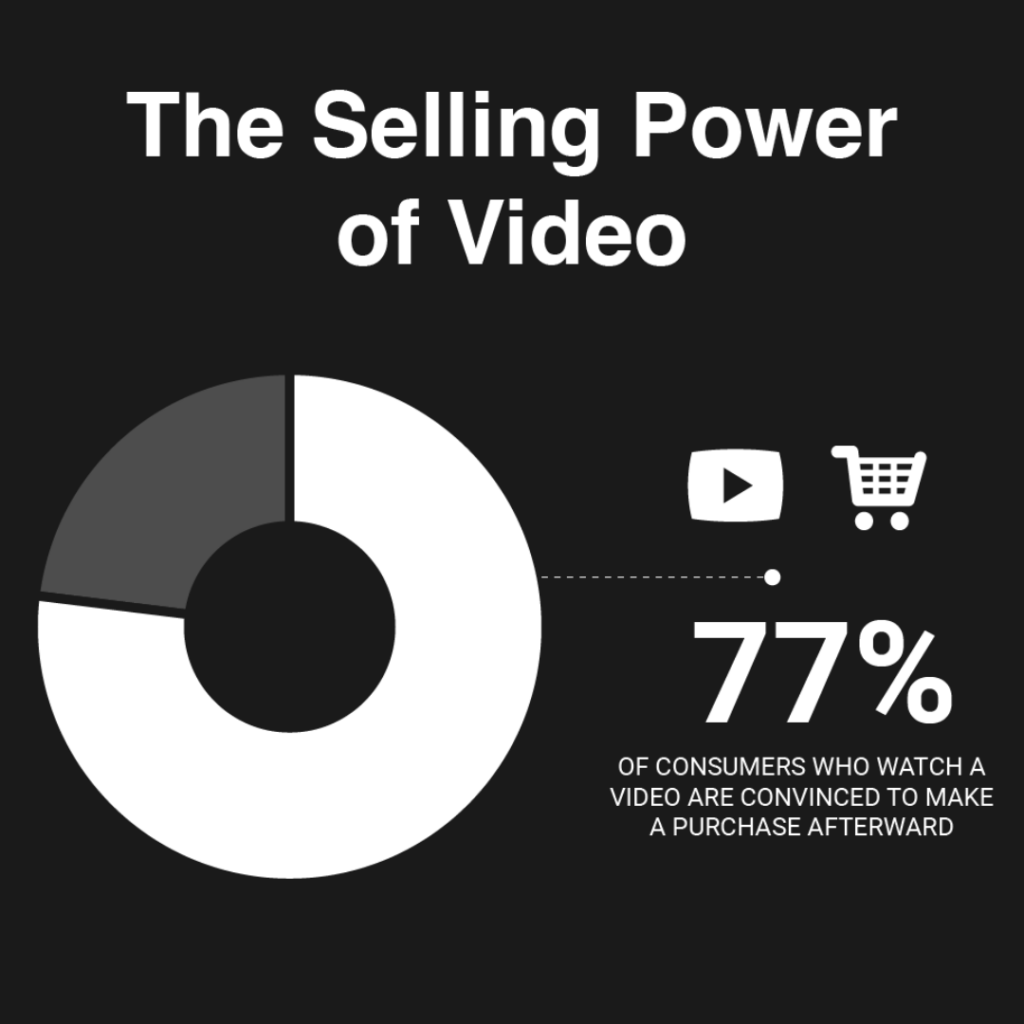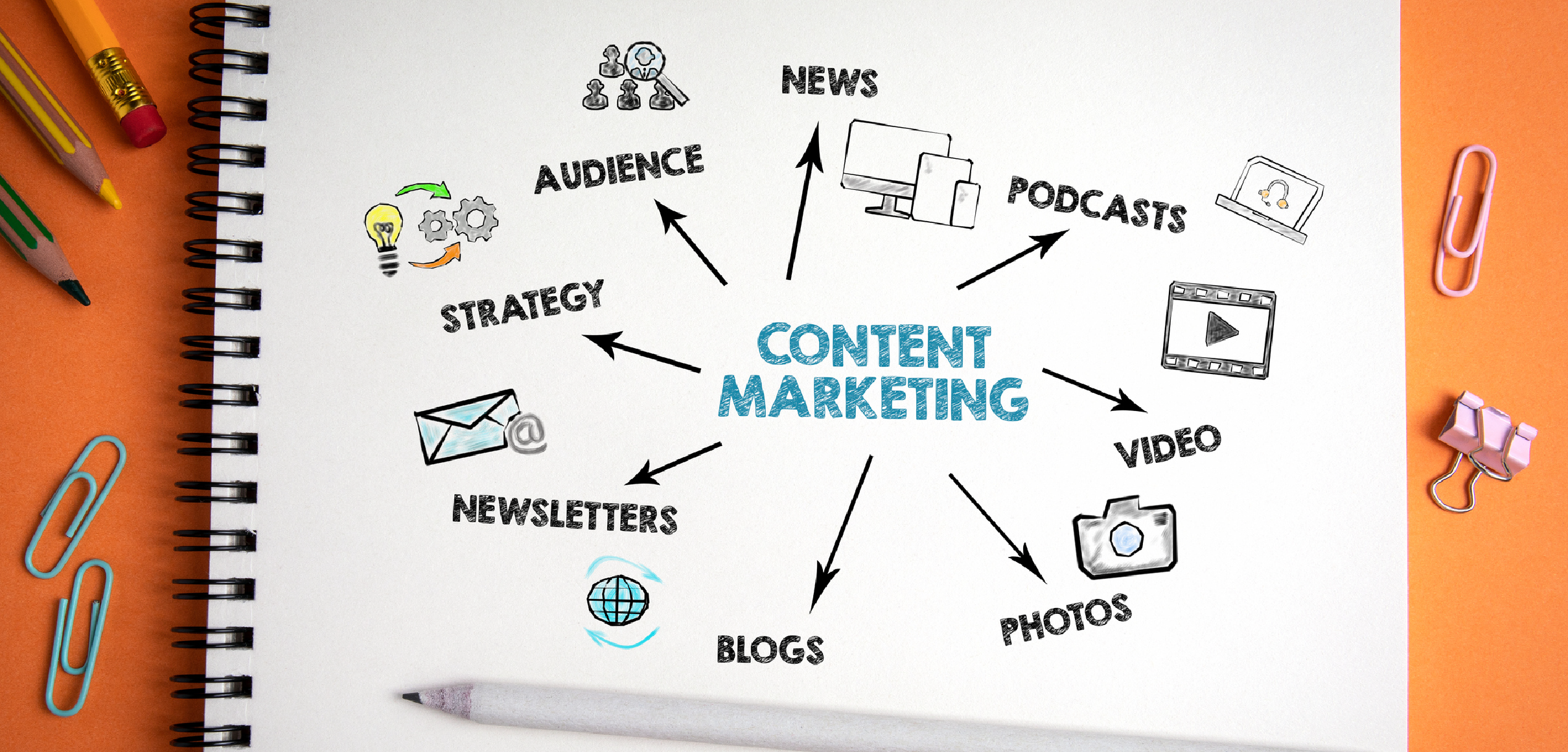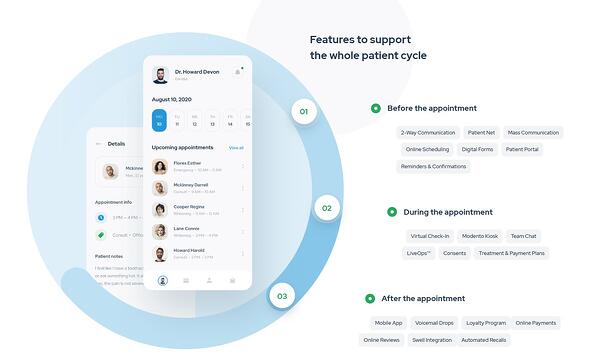There was a time when all a manufacturer had to do was focus on innovation and sell quality products at affordable prices. However, to stand out in today’s competitive online marketplace, companies need to focus on digital marketing in the manufacturing industry. After all, it’s likely that by 2025, 80% of B2B sales will take place using digital channels. Not only is a digital manufacturing marketing strategy essential, but marketing for manufacturers must include technical expertise.
The manufacturing industry targets a niche audience with very specific products and services. As a result, technical expertise is key to communicating not only to prospective buyers but also to designers and engineers. Companies have to be able to explain features and functions of (sometimes) highly complex products and processes so buyers understand what they’re purchasing, so technical teams can design and build them. For this reason, a successful manufacturing marketing strategy relies on a complete understanding of the technical aspects of the business and the products they sell.
Learn how technical expertise impacts marketing for manufacturers and helps in attracting, retaining, and growing current accounts for continued success.
“The manufacturing industry targets a niche audience with very specific products and services.”
What is the Role of Marketing in the Manufacturing Industry?
Marketing for manufacturers is all about communicating the benefits of a company’s product to its prospective buyers. It’s one thing to create the best widget in the industry, but if it doesn’t provide value to your audience, it won’t sell. A successful marketing plan for manufacturing companies helps to connect with consumers, remove barriers surrounding understanding, and provide useful solutions to buyers for higher conversions and business growth.
To clearly communicate how a manufacturer’s products deliver value, marketers have to understand how they work. Marketing for manufacturers is interesting because, in this industry, marketers must be able to explain technical concepts to people who are also technically minded, as well as laymen who may not fully understand what products do or how they function. By having a thorough understanding of the technicality of the products they promote, marketers can bridge the gap and appeal to all levels of the audience.
Tracking the buyer’s journey will tell you where your clients came from before they signed up for your trial. Those previous touchpoints will be key channels for displaying your PPC ads to increase the number of buyers ready to sign up.
However, the attribution model you use for tracking your buyers and their touchpoints will impact how you view your channels. An attribution model is how you distribute value from a sale among each contributing channel.
If you use a last-click attribution model, you only attribute the trial signup to the last channel the buyer visited. This model doesn’t consider other stops they made leading up to the trial signup. For example, that same buyer might have spent significant time on social media earlier in their sales journey, making that channel another valuable location for ads.
Seeing the entire journey in your attribution model is the most effective way to choose the best channels for your PPC ads.
“By having a thorough understanding of the technicality of the products they promote, marketers can bridge the gap and appeal to all levels of the audience.”
Ultimately, a marketer’s job is to attract, retain, and grow current accounts for sustainability and longevity. Ways to do this effectively include:
- Know your audience: marketers must know the demographics, background, and level of technical experience their audience has to create custom content that resonates and delivers value
- Build an online presence: remain active on digital channels and consistently publish informative, useful information that educates, explains, and informs
- Post authoritative content: position yourself as an industry leader with expert content that shares trends, forecasts, and findings
Manufacturing marketers who incorporate technical expertise help to earn credibility, build consumer trust, and develop customer loyalty. All of this helps to drive more business to the company and convert more prospects to customers.
How to Leverage Technical Expertise in Marketing for Manufacturers
One of the most effective ways to attract new prospects and retain current customers is to create a positive user experience. Typically this means delivering value and solving problems in a way that reduces friction and results in happy customers. In manufacturing, the buying process lends itself to several opportunities for consumer frustration.
Making sense of confusing technical drawings and complex industrial design while trying to purchase expensive industrial equipment can be an aggravating process. Luckily, a B2B marketing strategy provides several ways to eliminate those frustrations and earn loyal customers. Here are two ways a manufacturing marketing agency can leverage technical expertise for customer satisfaction.
1. Whitepapers
Whitepapers are educational, objective, long-form reports that focus not on selling a product but on providing solutions. They’re a terrific way to leverage your technical knowledge, as their expert-level data helps explain confusing technical data in a way that audience members can understand. Whitepapers help to:
- Identify your customer’s problem and its greater impact
- Recommend a solution
- Provide research and credible statistics to support the solution
Readers can download your whitepapers from your website (often in exchange for customer contact information). Although not specifically a sales tool, whitepapers can be a powerful aspect of a sales strategy for manufacturing companies. They can help you create a contact list of prospective customers and serve as a resource that builds customer trust and loyalty.
Whitepapers that describe advanced capability and technical processes are especially beneficial as a marketing tool because they:
- Build your reputation: position yourself as an industry expert and thought leader in your field
- Gain consumer confidence: authority content helps people feel more certain in their purchase decision
- Drive website traffic: people will visit your site to seek out your expert-level content
- Generate revenue: buyers can see why your solutions are superior and will choose you over your competitor
Well-written whitepapers that explain technical concepts in a way your audience can understand help to deliver value while reducing friction.

2. Video Tutorials
One of the greatest drawbacks to a digital marketplace is the inability of buyers to test a product before they make a purchase. This is especially detrimental in the manufacturing industry, where features and functionality can be difficult to envision from a photograph or technical description. Video content can be instrumental in converting customers because it allows people to see firsthand the mechanics of how something works. There are currently more than 244 billion digital video viewers in America. Videos are engaging, entertaining, and demonstrative.
“Video content can be instrumental in converting customers because it allows people to see firsthand the mechanics of how something works.”
In manufacturing, video tutorials can do everything from show how a product works to how to submit files for processing. Seeing an actual demonstration gives buyers the confidence they need to commit to a purchase. In fact, video convinces 77% of consumers to buy. As a marketing tool, video tutorials can:
- Help you connect with your customer
- Provide invaluable information that converts
- Set you apart from the competition
- Boost SEO for greater visibility
- Generate revenue

Videos are highly shareable, so they’re an effective tool to boost manufacturing marketing. They’re effective for the manufacturing industry because they can present information in three different, yet equally powerful, ways:
- Explainer video: short videos that express how your company or products solve problems
- How-to video: step-by-step instructions that teach viewers technical processes or ideas that are too complex for text descriptions
- Demo video: shows people how to use a product or complete a task
Through video content, you can connect with consumers on a more personal level and give a face and personality to your brand. This helps build trust and earn credibility, leading to strong customer relationships that last.
How Do You Market an Industrial Company?
Just like any business, marketing is crucial to the current and future success of your company. You have to know your audience, their needs and pain points, preferences, and buying habits. Use that information to identify solutions you provide that benefit them and deliver value. Create custom content that is relevant to their needs and alleviates their concerns. Learn where they’re spending their time online and reach them with your messaging on those channels.
The digital age has made it easier than ever to connect with prospective buyers. The Thomas Register of Manufacturers is the leading comprehensive directory of American and Canadian manufacturers. Google adopted the registry (originally a set of bound books) and renamed it ThomasNet, now an online resource. As a result, companies can reach younger procurement officers and digital marketing can add enterprise clients where it was once not possible to do so.
Think about your unique traits that help you stand out from the competition. Highlight features, services, or technical expertise you have that nobody else can offer. Remember to always keep your customers in mind and deliver solutions that meet their needs. Building relationships will produce benefits that last beyond sales.
“Building relationships will produce benefits that last beyond sales.“
How Can Manufacturing Increase Revenue?
With 638,583 American manufacturing businesses currently in operation, you have to find ways to set yourself apart from the competition. Digital marketing and marketers with technical expertise are key to attracting more business to your manufacturing company. Here are three ways manufacturing can increase revenue.
1. Create a Positive Experience
One way to drive sales is to ensure your customers are satisfied with their experience with your brand. Customer relationship management (CRM) is critical in attracting new prospects and retaining current customers. CRM for manufacturers helps you manage all interactions with your audience, which yields the following benefits:
- Improved sales performance: all conversations are located in one place so teams have access to all information and no sales opportunities fall through the cracks
- Forecast future sales: seeing potential deals can help you plan for upcoming demand
- Smoother supply chain: CRM provides visibility and insights about operations and processes
CRM systems help you ensure you’re providing a positive customer experience, which in turn sets you apart from the competition and drives business your way.
2. Innovation
Your manufacturing business should be constantly finding new and creative ways to solve your audience’s problems. Whether it’s a matter of improving the features of your current products or coming up with entirely new solutions, the company that stays ahead of the competition will attract the attention of the buyers in need.
Innovation can also revolve around your processes and operations. Find ways to streamline your efforts to make things run more smoothly and efficiently. These kinds of creative solutions can attract the attention of other industry leaders who want to learn from your ideas. They can also entice customers looking for a more effective way of doing business to give your brand a try.
Whether it’s new products or new processes, you have to be able to explain these new ideas to your audience. Use research to back up your claims and reputable resources to prove your findings. When you have the ideas, tools, and technical expertise, you’ll entice buyers to convert, thus generating more revenue for your business.
3. Strengthen Your Online Presence
With such a focus on digital interactions in today’s marketplace, if you want to generate more revenue, you have to strengthen your online presence. Use SEO to earn higher search engine ranking placement so you can increase visibility and drive more traffic to your site. Craft compelling content that includes high-performing keywords so your material aligns with online searches. Incorporate quality backlinks that offer valuable resources to your readers.
Engage your audience on social media platforms. Highly targetable and easy to share information, social media is a great way to build brand awareness and identity while learning more about your prospective customers. Chat threads and forums will reveal candid feedback about you and your competitors. Discover common industry concerns or problems and learn how you can develop a solution that would earn customers and generate more revenue.
Maximize Your Marketing for Manufacturers
An effective digital marketing strategy combined with technical expertise is a winning combination for attracting new prospects, retaining current customers, and growing current accounts. Behind The Work is a manufacturing marketing agency that can help position manufacturers to succeed with technical expertise. Enhance your digital marketing strategy and generate more revenue for your manufacturing business.
Ready to improve your performance? Visit Behind The Work today.

 Contributed by Sonny Sultani
Contributed by Sonny Sultani























